10 Best Herbal Capsules For Arteriosclerosis
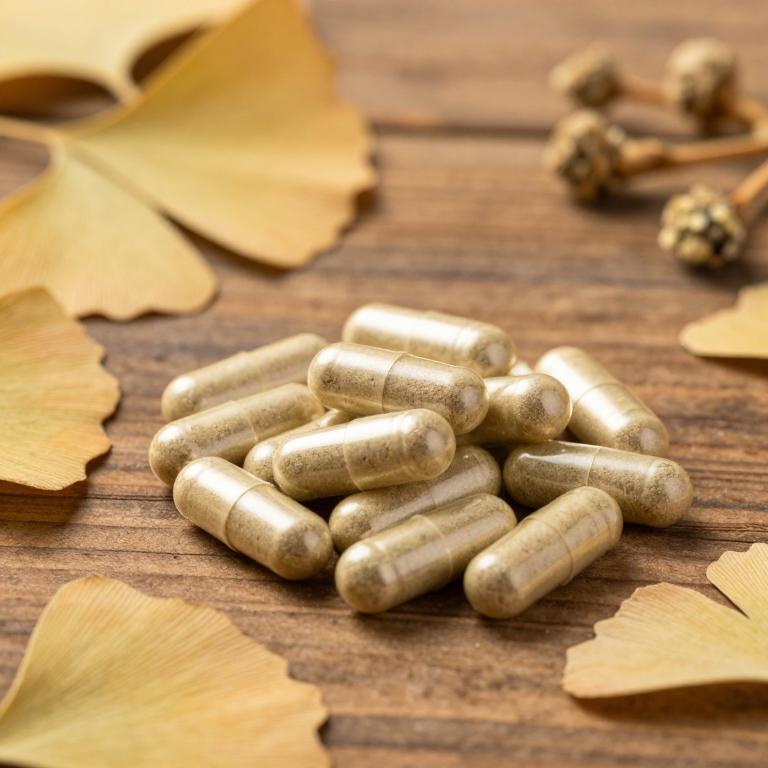
Herbal capsules have gained attention as potential complementary therapies for managing arteriosclerosis, a condition characterized by the hardening and narrowing of arteries.
Certain herbs, such as garlic, ginger, and hawthorn, are believed to support cardiovascular health by reducing inflammation, improving blood flow, and lowering cholesterol levels. While some studies suggest that these natural remedies may offer modest benefits, they are not a substitute for conventional medical treatments like statins or lifestyle modifications. It is important for individuals to consult with healthcare professionals before incorporating herbal supplements into their regimen, as they can interact with medications and have variable efficacy.
Overall, herbal capsules may play a supportive role in arteriosclerosis management when used under proper guidance.
Table of Contents
- 1. Ginkgo (Ginkgo biloba)
- 2. Common grape (Vitis vinifera)
- 3. Ceylon cinnamon (Cinnamomum verum)
- 4. Garlic (Allium sativum)
- 5. Ginger (Zingiber officinale)
- 6. Panax ginseng (Panax ginseng)
- 7. St. john's wort (Hypericum perforatum)
- 8. Stinging nettle (Urtica dioica)
- 9. Turmeric (Curcuma longa)
- 10. Thistle (Silybum marianum)
1. Ginkgo (Ginkgo biloba)

Ginkgo biloba herbal capsules are commonly used for their potential cardiovascular benefits, particularly in the context of arteriosclerosis, a condition characterized by the hardening and narrowing of arteries.
The active compounds in ginkgo biloba, such as flavonoids and terpenoids, are believed to improve blood circulation and reduce oxidative stress, which may help in preventing the buildup of plaque in arterial walls. Some studies suggest that ginkgo biloba may enhance nitric oxide production, which plays a key role in relaxing blood vessels and maintaining healthy blood flow. While preliminary research shows promise, more clinical trials are needed to confirm its efficacy and safety for treating arteriosclerosis.
As with any herbal supplement, it is important to consult a healthcare professional before use, especially for individuals with existing cardiovascular conditions or those taking other medications.
2. Common grape (Vitis vinifera)
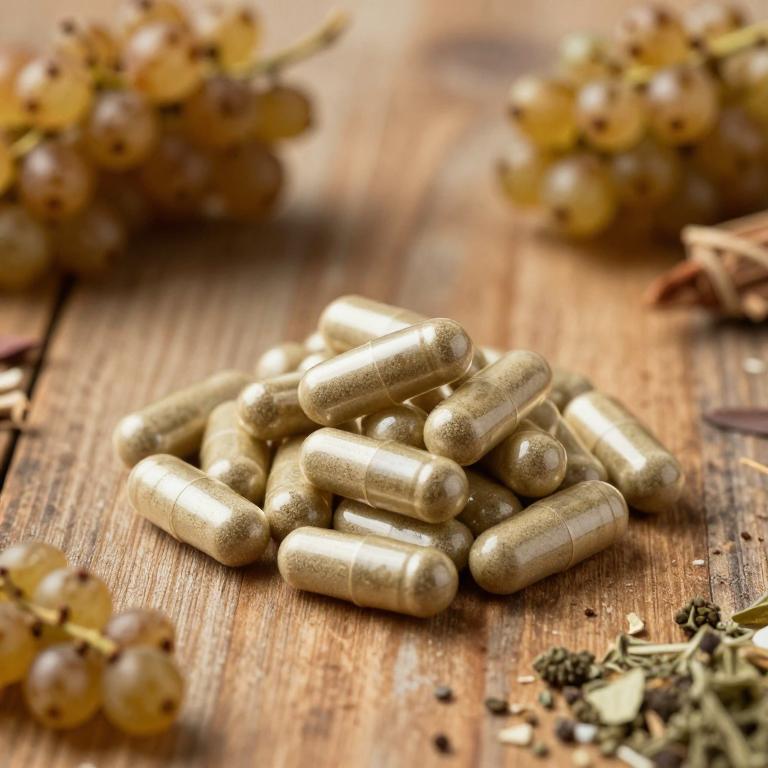
Vitis vinifera herbal capsules, derived from the grape vine, are traditionally used for their potential cardiovascular benefits, particularly in the management of arteriosclerosis.
These capsules contain resveratrol, a potent antioxidant known for its ability to reduce oxidative stress and inflammation, which are key factors in the development of arterial plaque. Clinical studies suggest that regular consumption of Vitis vinifera supplements may help improve endothelial function and lower LDL cholesterol levels, both of which are critical in preventing arterial hardening. However, it is important to note that while these capsules may support overall heart health, they should not replace prescribed medical treatments for arteriosclerosis.
Always consult with a healthcare professional before incorporating any herbal supplements into a treatment regimen.
3. Ceylon cinnamon (Cinnamomum verum)
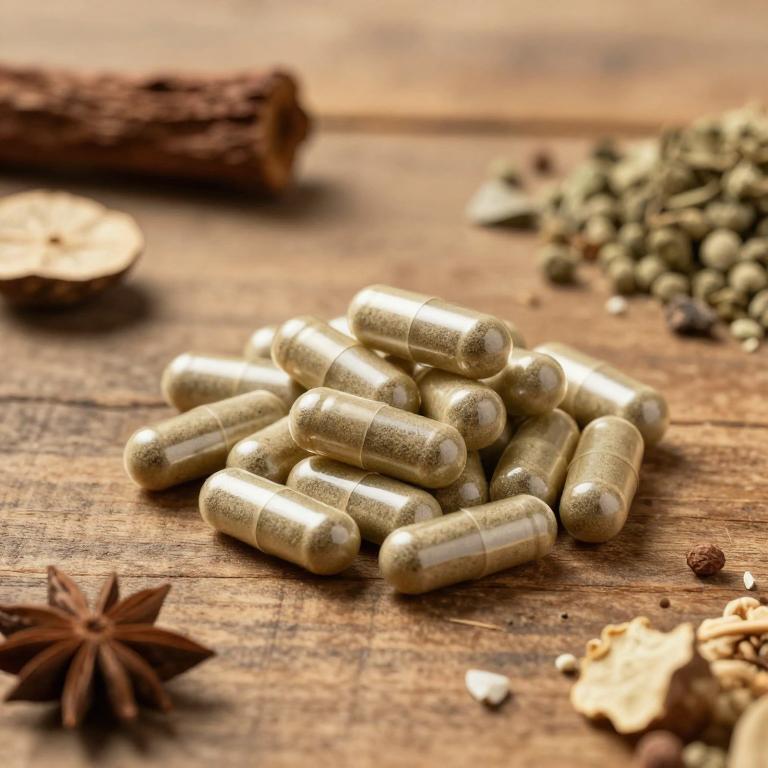
Cinnamomum verum, commonly known as true cinnamon, has been studied for its potential benefits in supporting cardiovascular health, particularly in relation to arteriosclerosis.
The active compounds in cinnamon, such as cinnamaldehyde and polyphenols, may help reduce oxidative stress and inflammation, which are key contributors to the development of arterial plaque. Herbal capsules containing Cinnamomum verum are often used as a complementary therapy to support healthy blood flow and arterial function. Some research suggests that regular consumption of cinnamon may help lower LDL cholesterol levels, further supporting arterial health.
However, it is important to consult with a healthcare professional before using cinnamon supplements, especially for individuals with existing cardiovascular conditions or those taking medications.
4. Garlic (Allium sativum)
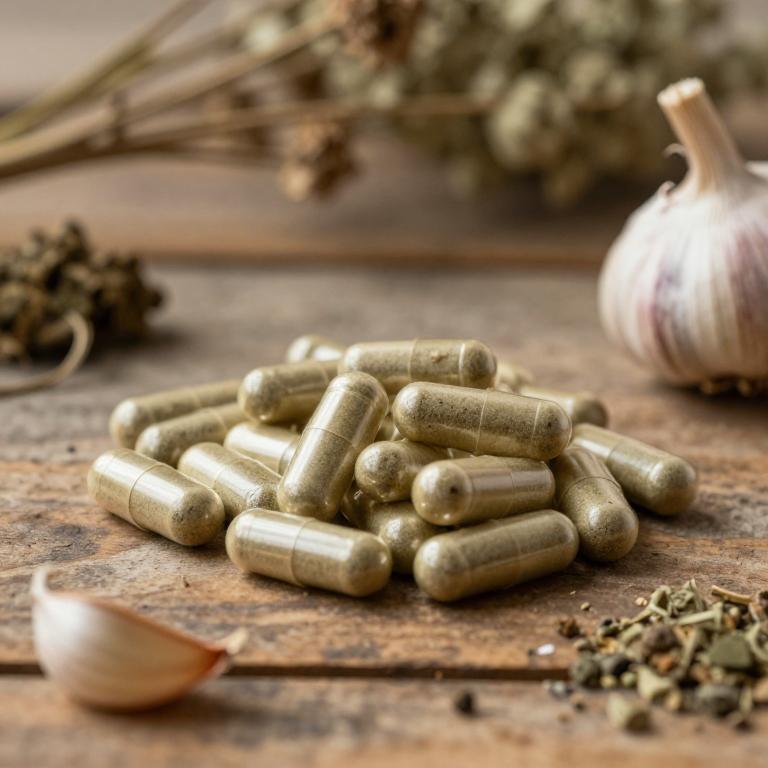
Allium sativum, commonly known as garlic, has been traditionally used for its potential cardiovascular benefits, and garlic herbal capsules are increasingly being explored for their role in managing arteriosclerosis.
These capsules contain concentrated garlic extract, which may help reduce oxidative stress and inflammation—key contributors to arterial plaque buildup. Studies suggest that allicin, a bioactive compound in garlic, may inhibit the oxidation of low-density lipoprotein (LDL) cholesterol, thereby preventing the formation of atherosclerotic lesions. While garlic supplements show promise as a complementary therapy, they should not replace conventional medical treatments for arteriosclerosis without consulting a healthcare provider.
Further clinical research is needed to fully establish the efficacy and optimal dosing of garlic capsules in the prevention and management of this condition.
5. Ginger (Zingiber officinale)

Zingiber officinale, commonly known as ginger, has been traditionally used for its anti-inflammatory and antioxidant properties, which may offer potential benefits in the management of arteriosclerosis.
Herbal capsules containing zingiber officinale extract are often marketed for their ability to improve circulation and reduce oxidative stress, both of which are implicated in the development of arterial plaque. Some studies suggest that ginger may help lower LDL cholesterol levels and reduce blood viscosity, potentially slowing the progression of arterial hardening. However, while preliminary research is promising, more rigorous clinical trials are needed to confirm its efficacy and safety in treating arteriosclerosis.
As with any supplement, it is important to consult a healthcare professional before using ginger capsules as part of a treatment plan for cardiovascular conditions.
6. Panax ginseng (Panax ginseng)
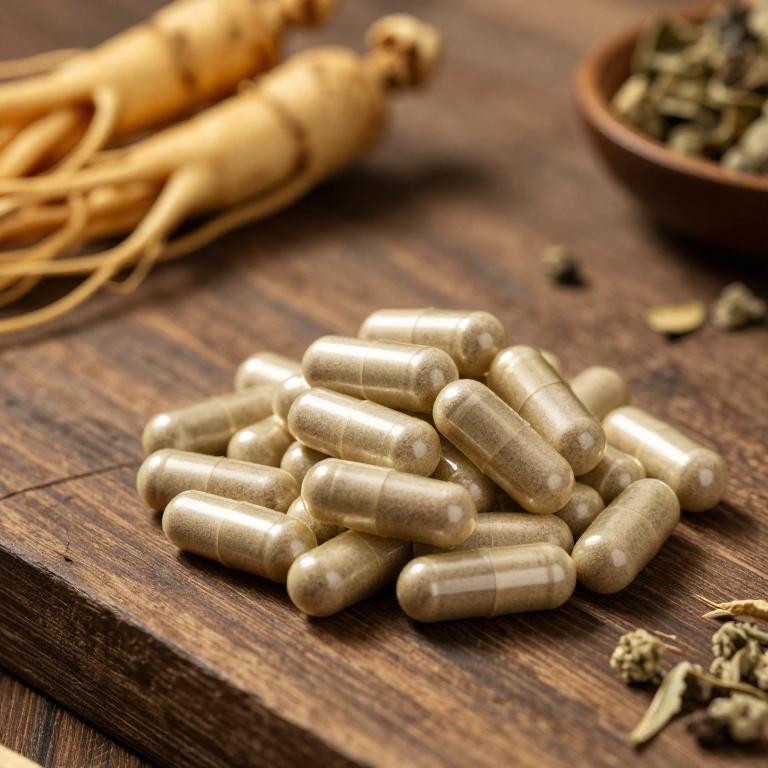
Panax ginseng, a widely used adaptogenic herb, has been studied for its potential benefits in supporting cardiovascular health, particularly in relation to arteriosclerosis.
The active compounds in Panax ginseng, such as ginsenosides, may help reduce oxidative stress and inflammation, which are key contributors to the development of arterial plaque. Some research suggests that ginseng may improve blood flow and lower blood pressure, potentially slowing the progression of arteriosclerosis. However, while preliminary studies show promise, more clinical trials are needed to confirm its efficacy and safety for this specific condition.
As with any herbal supplement, it is important to consult a healthcare provider before using Panax ginseng, especially for individuals with preexisting cardiovascular conditions.
7. St. john's wort (Hypericum perforatum)

Hypericum perforatum, commonly known as St. John's wort, is a herbal supplement that has been traditionally used for its potential cardiovascular benefits.
While primarily recognized for its effects on mood and depression, some studies suggest that it may help in reducing oxidative stress and inflammation, which are key factors in the development of arteriosclerosis. The active compounds in hypericum perforatum, such as hypericin and hyperforin, may contribute to the regulation of cholesterol levels and the prevention of arterial plaque buildup. However, it is important to note that more clinical research is needed to fully understand its efficacy and safety in treating arteriosclerosis.
As with any supplement, it should be used under the guidance of a healthcare professional, especially for individuals with existing cardiovascular conditions.
8. Stinging nettle (Urtica dioica)

Urtica dioica, commonly known as stinging nettle, has been explored for its potential health benefits, including its possible role in managing arteriosclerosis.
Herbal capsules containing Urtica dioica are often marketed for their anti-inflammatory and antioxidant properties, which may contribute to vascular health. Some studies suggest that compounds in stinging nettle, such as flavonoids and polyphenols, could help reduce oxidative stress and improve blood flow. However, scientific evidence supporting its effectiveness in treating arteriosclerosis remains limited and inconclusive.
As with any supplement, it is important to consult a healthcare provider before use, especially for individuals with existing cardiovascular conditions.
9. Turmeric (Curcuma longa)

Curcuma longa, commonly known as turmeric, contains curcumin, a compound that has shown potential in reducing inflammation and oxidative stress, both of which are linked to the development of arteriosclerosis.
Herbal capsules made from Curcuma longa are often used as a complementary therapy to support cardiovascular health by potentially improving endothelial function and reducing arterial stiffness. Studies suggest that curcumin may help in preventing the buildup of plaque in arteries, although more research is needed to confirm its efficacy in human clinical settings. These capsules are generally considered safe when taken in recommended doses, though they may interact with certain medications.
As with any supplement, it is advisable to consult a healthcare professional before incorporating Curcuma longa capsules into a treatment plan for arteriosclerosis.
10. Thistle (Silybum marianum)

Silybum marianum, commonly known as milk thistle, is a herbal remedy that has been studied for its potential benefits in supporting liver health and reducing oxidative stress, which may play a role in the development of arteriosclerosis.
The active compound in milk thistle, silymarin, is believed to have antioxidant and anti-inflammatory properties that could help protect arterial walls from damage. While some research suggests that silymarin may improve endothelial function and reduce lipid peroxidation, more clinical studies are needed to confirm its efficacy in treating or preventing arteriosclerosis. Herbal capsules containing silybum marianum are often marketed as a complementary therapy for cardiovascular health, but they should not replace conventional medical treatments.
It is important to consult a healthcare professional before using milk thistle, especially for individuals with existing cardiovascular conditions or those taking medications.